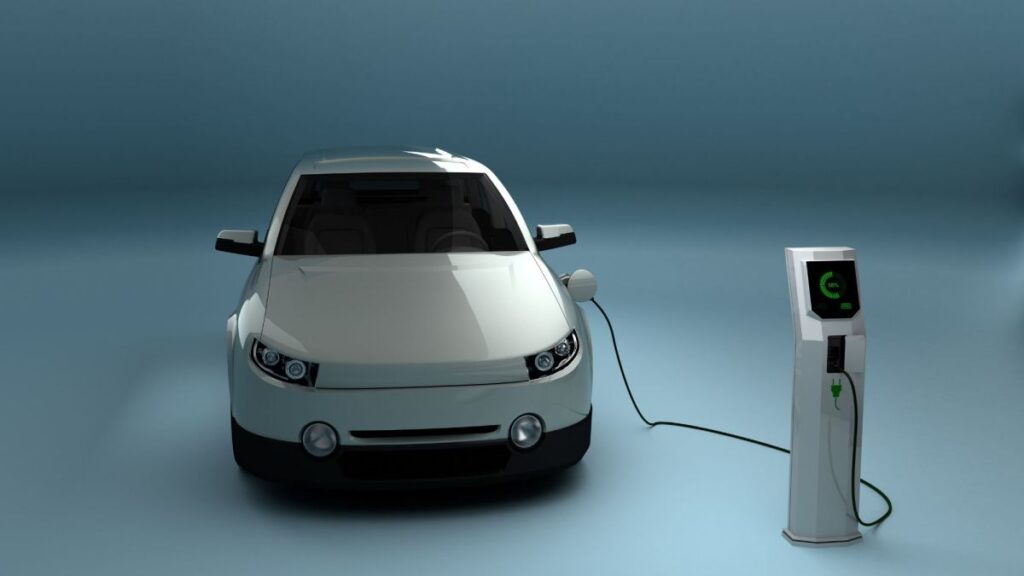Introduction to Electric Cars
The concept of the electric car has undergone significant evolution over the past century, from early experiments to the high-performance vehicles we see today. The creation of electric cars is the result of numerous technological advancements, environmental concerns, and economic factors. This article explores the pivotal moments and key influences that have shaped the development of electric cars, leading to their current status as a viable and increasingly popular mode of transportation.

Early Innovations and Experiments
The idea of an electric vehicle (EV) dates back to the early 19th century. Inventors like Robert Anderson and Thomas Davenport experimented with electric carriages and battery-powered vehicles. However, these early models were limited by the rudimentary technology of the time, including heavy batteries with low energy capacity and limited range.
Despite these limitations, the early 20th century saw a brief period where electric cars competed with gasoline and steam-powered vehicles. Companies like Baker Electric and Detroit Electric produced electric cars that were quiet, clean, and easy to operate. However, the advent of mass production techniques, notably by Henry Ford with the Model T, and the discovery of large oil reserves led to the dominance of gasoline-powered vehicles by the 1920s.
Technological Advancements
Several key technological advancements have been crucial in the development of modern electric cars:
- Battery Technology: The heart of any electric vehicle is its battery. Early EVs were hampered by heavy and inefficient lead-acid batteries. The development of lithium-ion batteries revolutionized electric cars by offering higher energy density, lighter weight, and longer lifespans. Innovations in battery management systems have also improved safety and efficiency.
- Electric Motors: Advances in electric motor technology have significantly enhanced the performance of EVs. Modern electric motors are more efficient, compact, and powerful than their predecessors, providing better acceleration and higher top speeds.
- Power Electronics: The development of sophisticated power electronics, including inverters and controllers, has enabled precise control of electric motors and battery systems, improving the overall efficiency and performance of electric cars.
Environmental Concerns
Growing awareness of environmental issues has been a major driving force behind the creation of electric cars. The negative impact of fossil fuel emissions on air quality and climate change has prompted governments, organizations, and consumers to seek cleaner alternatives.
- Air Pollution: Internal combustion engines (ICE) emit pollutants such as nitrogen oxides, carbon monoxide, and particulate matter, which contribute to poor air quality and health problems. Electric cars produce zero tailpipe emissions, significantly reducing urban air pollution.
- Climate Change: The transportation sector is a significant contributor to greenhouse gas emissions, primarily carbon dioxide. Electric cars, when powered by renewable energy sources, offer a sustainable solution to reduce carbon footprints and mitigate climate change.
Government Policies and Incentives
Governments around the world have played a crucial role in promoting the adoption of electric cars through various policies and incentives:
- Regulations and Emission Standards: Stricter emission standards and regulations have pushed automakers to develop cleaner vehicles. Policies like the Corporate Average Fuel Economy (CAFE) standards in the United States and the European Union’s CO2 emission regulations have accelerated the shift towards electric cars.
- Subsidies and Tax Credits: Many countries offer financial incentives such as tax credits, rebates, and grants to lower the cost of electric cars for consumers. These incentives make electric cars more competitive with traditional gasoline vehicles.
- Infrastructure Development: Governments have invested in the development of charging infrastructure, addressing one of the key barriers to electric car adoption. The expansion of public and private charging networks has made owning and operating an electric car more convenient.
Economic Factors and Market Dynamics
The economic landscape and market dynamics have also influenced the development and adoption of electric cars:
- Rising Fuel Prices: Fluctuations in oil prices and concerns over fuel supply security have made electric cars an attractive alternative. The cost of electricity, particularly from renewable sources, is more stable and predictable compared to fossil fuels.
- Automaker Investments: Major automakers have recognized the potential of electric cars and have invested heavily in research, development, and production. Companies like Tesla, Nissan, and BMW have led the charge, producing innovative and high-performing electric cars that appeal to a broad range of consumers.
- Consumer Demand: Increasing consumer awareness of environmental issues and the desire for sustainable transportation options have driven demand for electric cars. The improved performance, lower operating costs, and technological advancements in EVs have made them a viable and desirable option for many buyers.
Future Prospects and Innovations
The future of electric cars looks promising, with continued advancements and innovations on the horizon:
- Solid-State Batteries: Research into solid-state battery technology promises even greater energy density, faster charging times, and improved safety compared to current lithium-ion batteries.
- Autonomous Driving: The integration of autonomous driving technology with electric cars could revolutionize transportation, offering safer, more efficient, and convenient mobility solutions.
- Wireless Charging: Developments in wireless charging technology could eliminate the need for physical charging connectors, making charging more convenient and accessible.
- Sustainable Manufacturing: Automakers are increasingly focusing on sustainability throughout the production process, including using recycled materials and renewable energy in manufacturing facilities.
Conclusion
The creation of electric cars is the result of a confluence of technological advancements, environmental concerns, government policies, and market dynamics. As battery technology continues to improve, charging infrastructure expands, and consumer demand for sustainable transportation grows, electric cars are poised to become a dominant force in the automotive industry. The journey towards widespread adoption of electric cars is well underway, promising a cleaner, more efficient, and sustainable future for transportation.